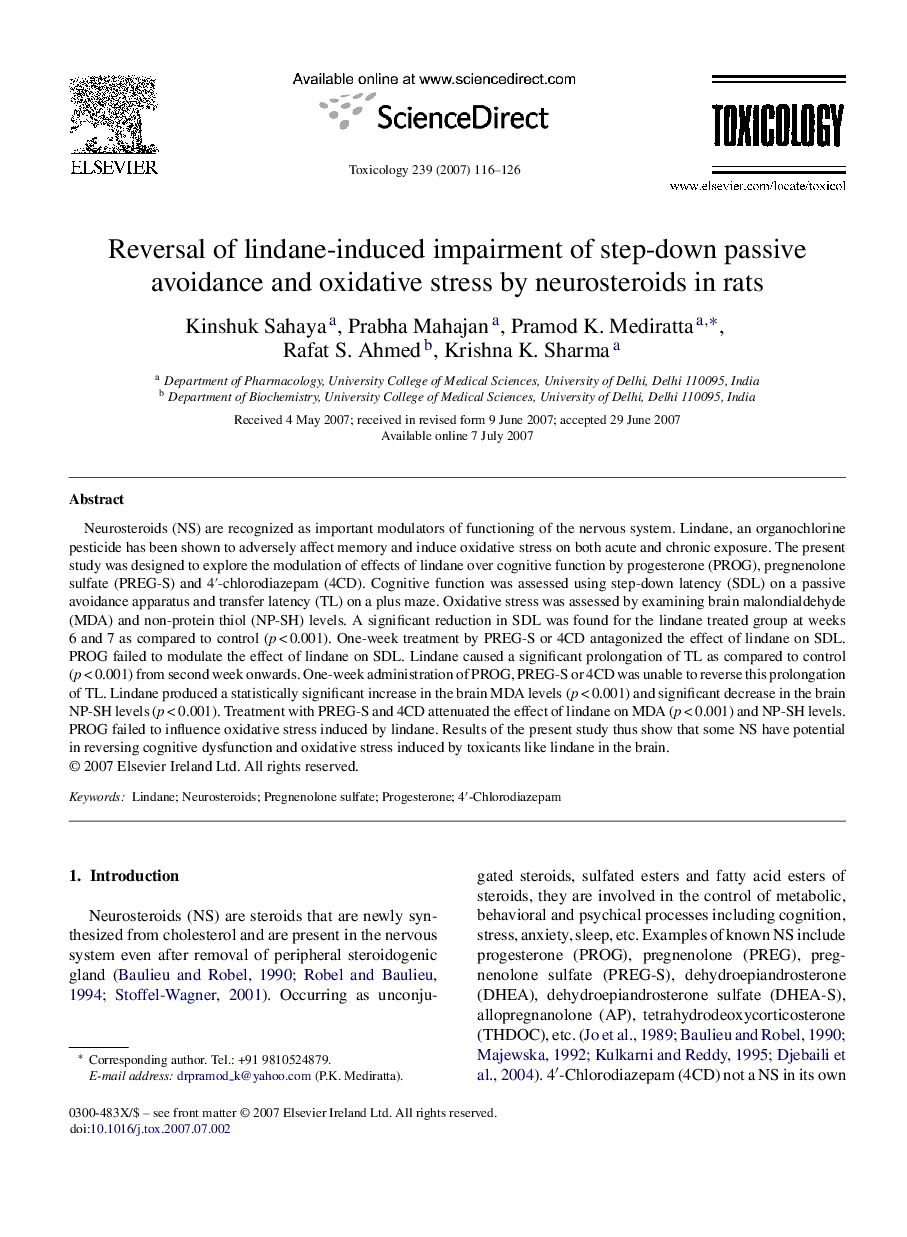| Article ID | Journal | Published Year | Pages | File Type |
|---|---|---|---|---|
| 2597562 | Toxicology | 2007 | 11 Pages |
Neurosteroids (NS) are recognized as important modulators of functioning of the nervous system. Lindane, an organochlorine pesticide has been shown to adversely affect memory and induce oxidative stress on both acute and chronic exposure. The present study was designed to explore the modulation of effects of lindane over cognitive function by progesterone (PROG), pregnenolone sulfate (PREG-S) and 4′-chlorodiazepam (4CD). Cognitive function was assessed using step-down latency (SDL) on a passive avoidance apparatus and transfer latency (TL) on a plus maze. Oxidative stress was assessed by examining brain malondialdehyde (MDA) and non-protein thiol (NP-SH) levels. A significant reduction in SDL was found for the lindane treated group at weeks 6 and 7 as compared to control (p < 0.001). One-week treatment by PREG-S or 4CD antagonized the effect of lindane on SDL. PROG failed to modulate the effect of lindane on SDL. Lindane caused a significant prolongation of TL as compared to control (p < 0.001) from second week onwards. One-week administration of PROG, PREG-S or 4CD was unable to reverse this prolongation of TL. Lindane produced a statistically significant increase in the brain MDA levels (p < 0.001) and significant decrease in the brain NP-SH levels (p < 0.001). Treatment with PREG-S and 4CD attenuated the effect of lindane on MDA (p < 0.001) and NP-SH levels. PROG failed to influence oxidative stress induced by lindane. Results of the present study thus show that some NS have potential in reversing cognitive dysfunction and oxidative stress induced by toxicants like lindane in the brain.
